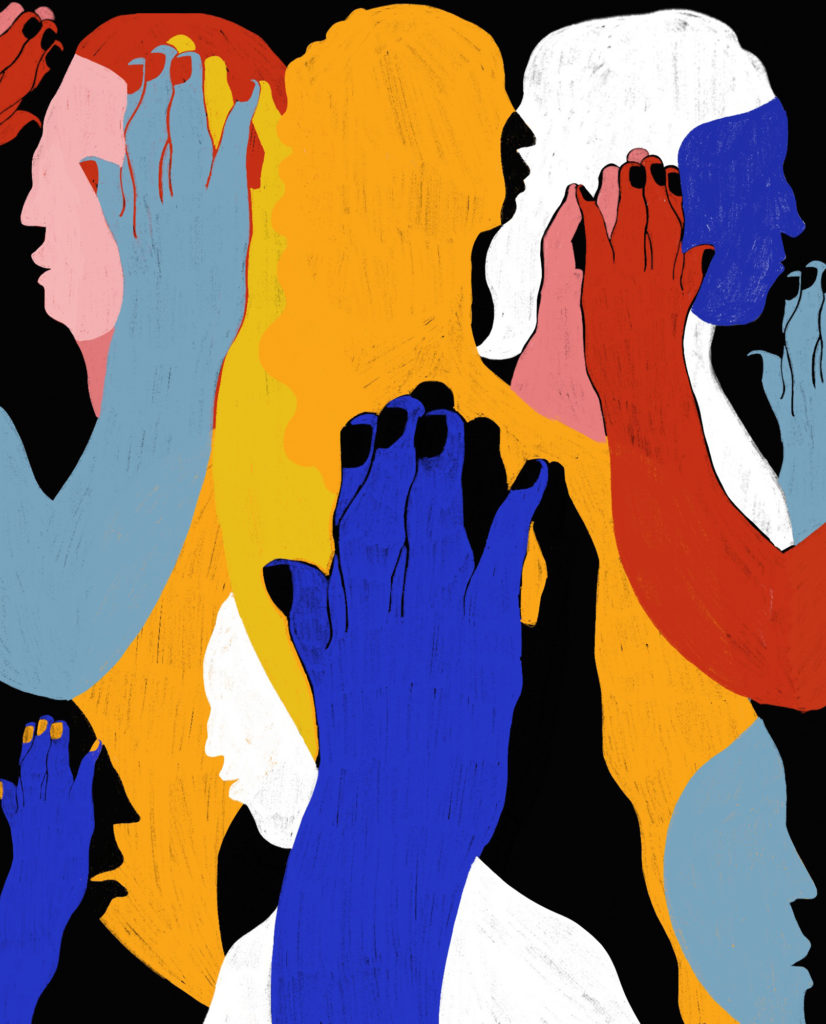
We wear a mask in public all the time, have been. My mask is how I want to be seen. Maybe it does the job, perhaps not. I take it off when I’m alone, asleep, or among family and longtime friends. It feels safe to take off the public mask in those protected groups.
When the impact of the coronavirus first shifted life’s daily routines more than a year ago, I noticed that a rare sense of shared experience seemed to descend upon American society. What will we learn? What will we value, or value more? Will we re-evaluate what we most deeply esteem? Asked often at the time, those questions arose from a deep desire to adapt. And these: What do we miss? What will change forever after? What lessons will we take with us?
But the questions did not live for long. Quickly, it became clear that the pandemic was not to be a shared experience. Some of us died, some of us didn’t. Some of us were more likely to die than others. Some, not all, lost family members. Some went jobless, others maintained their income. Some profited greatly. And some kept jobs with great risks, had to. Wearing masks became a sharpened point of conflict. The sense of a common struggle toward a common good eroded. Community sometimes has a short life.
Early on, I wrote that I missed Sunday Mass in Sacred Heart Chapel. Living without Jesuit homilies and inspiring music was dulled living. But as a Eucharistic minister, I most missed handing the cup of wine to those who approached the altar for Holy Communion. I noticed that most people remove their public mask at that moment. I tried always to do so, too. The moment calls for it. I miss the release found in taking off the mask, like drawing fresh air in a spiritual breath. I miss the community.
For many weeks, I’ve participated in an online Mass. A friend, who is a priest, says Mass from his living room. Others attend, too, some 20 or 30 of us from across the country. Welcome greeting, Gospel, homily, breaking of the bread, prayer after Communion, benediction — the Order of Mass is intact. Still, none of us can receive the bread and wine, and it’s as unlike Mass in the chapel as Mass can be.
But I’ve come to deeply value the moment when we who are online write our prayers, the Prayers of the Faithful, into the chat box. The unemployed brother, the wife whose husband died from the virus, the teenager diagnosed with cancer, asylum-seekers at the border — our deepest hopes and fears are shared. Even the veiled prayer for a “special intention” reveals that there is a heart among us filled with desire or anguish. Our masks are removed.
During the pandemic, many of us have shaped a community in such temporary shelters. I think often about the images evoked by the word shelter: a roof over one’s head, a haven from violence and danger, an unexpected home where we are welcomed and cared for. Will we take those shelters with us, and expand them, as we move on?
Joseph Wakelee-Lynch is the editor of LMU Magazine. His book reviews have appeared in The Washington Post, Philadelphia Inquirer, Minneapolis Tribune, National Catholic Reporter and elsewhere. Follow him @jwlmageditor. Diana Ejaita is an Italian-Nigerian illustrator and textile designer in Berlin. Her clients have included Design Indaba, Apple, The New Yorker, Scoop and others. Follow her @dianaejaita.
